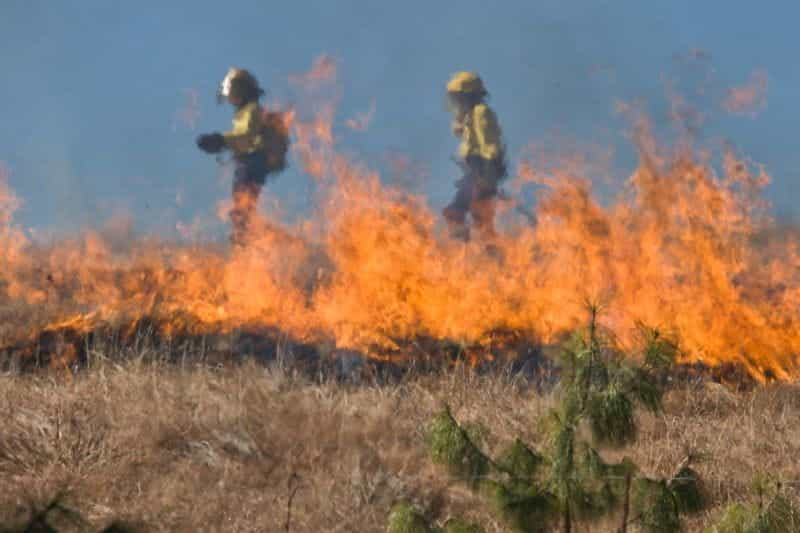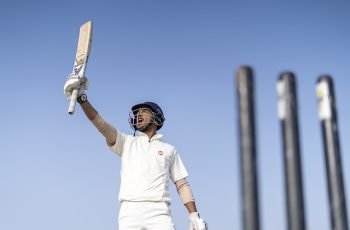Australian Rugby Star Calls for Sport to Tackle Climate Change
Never one to shy away from a challenge, the Australia rugby union captain David Pocock has rallied the sports establishment to take a stronger stance towards environmental issues. The 32-year-old national treasure has spoken up and called on fellow athletes to use their platforms to advance the progress of clean energy solutions and initiatives designed to curb the impact of climate change.

The Australian wildfires at the beginning of 2020 brought into focus the impending disaster of a warming climate. Sports stars across the country and the rest of the world are now raising their voices to draw attention to the issue. ©stevepb/Pixabay
Australia is a country that feels the full brunt of the worlds warming each year, catastrophic bush fires sweep through Australia every summer. In the previous years, they have become noticeably stronger and more devastating as the world’s average temperature rises making each year more severe than the last. In this context, it is refreshing to see some of the country’s most respected people, who hold no political office or affiliation, taking a stand to push these important issues to the top of the public discourse.
Speaking to the British Broadcasting Corporation (BBC) for their eight-part series titled Emergency on Planet Sport, Pocock spoke at length with regards to sport’s role in the climate emergency. The theme of the opening episode was to highlight the immense influence that sports stars hold over the wider community. In that sense, sport cannot afford to isolate itself from these issues, they must stand at the forefront and lead by example.
Pocock himself is an exemplary role model in environmental issues since well before this new documentary aired. In 2014 the Australian rugby player was arrested after chaining himself to a digger during a protest about the damage inflicted on the landscape by coal-mining companies. The fact remains that if the sport world doesn’t begin to up its dedication to fighting for these causes, then the worst trepidations of the science community will become a premature reality.
Pocock Has an Axe to Grind
In the documentary, Pocock outlines some of his personal motivations and anecdotes from the journey of being a climate activist in sport. He recalled that back in 2014 when he was arrested, the sporting world had a negative retort to his activism, even threatening to rip up his contract if he continued on the path or repeated the actions.
Reflecting on the difficulties of sportsmen and women speaking out about the impact of elite sport on the environment, Pocock says that he understands why some people might be hesitant. Many sports do indeed have very large carbon footprints and some athletes are scared to bite the hand that feeds them. Not only that, but tabloid press often take aim at individuals who speak out on certain topics, trying to find chinks in their armor and moments that put them in a hypocritical context.
Specifically for Australian rugby, Pocock believes that the sport should be taking a much more active role in the environmental causes. Not least because the Pacific Islands has become a production line of national team talent, and is one of the areas of the world under the most imminent threat of catastrophic environmental damage as a result of a warming climate.
Broadening the Horizon and Call to Global Sport
Looking beyond the confines of Australia, an influential organization in this fight called the Rapid Transition Alliance outlined the global picture for elite sport and the potential impact of climate change on their activities. It said within the next 30 years, over 25% of English football stadiums will be impacted by regular flooding. One in three golf courses on the British Open circuit would also be impacted by the same problem. In India, cricket grounds across the country could become unusable because of the soaring temperatures and drought.
Whilst the impact of COVID is all to well-known and documented, many environmental activists are now arguing that climate change poses an even greater disruptive risk. That change is not too far around the corner according to the British Association for Sustainable Sport. High-profile sportsmen including Hector Bellerin and Chris Smalling have already raised their voices on many occasions to try and evoke an attitude change across the industry.
Speaking candidly about the power of the voice of an elite level athlete, Southampton FC midfield Oriol Romeu said he remembers vividly the words spoken to him by every professional footballer he met as a child. The voices of these stars are becoming a powerful tool in swaying public behaviors. It is the responsibility of athletes and sportsmen around the world to recognize the influence and use their huge platforms to make some significant changes in these important issues.



